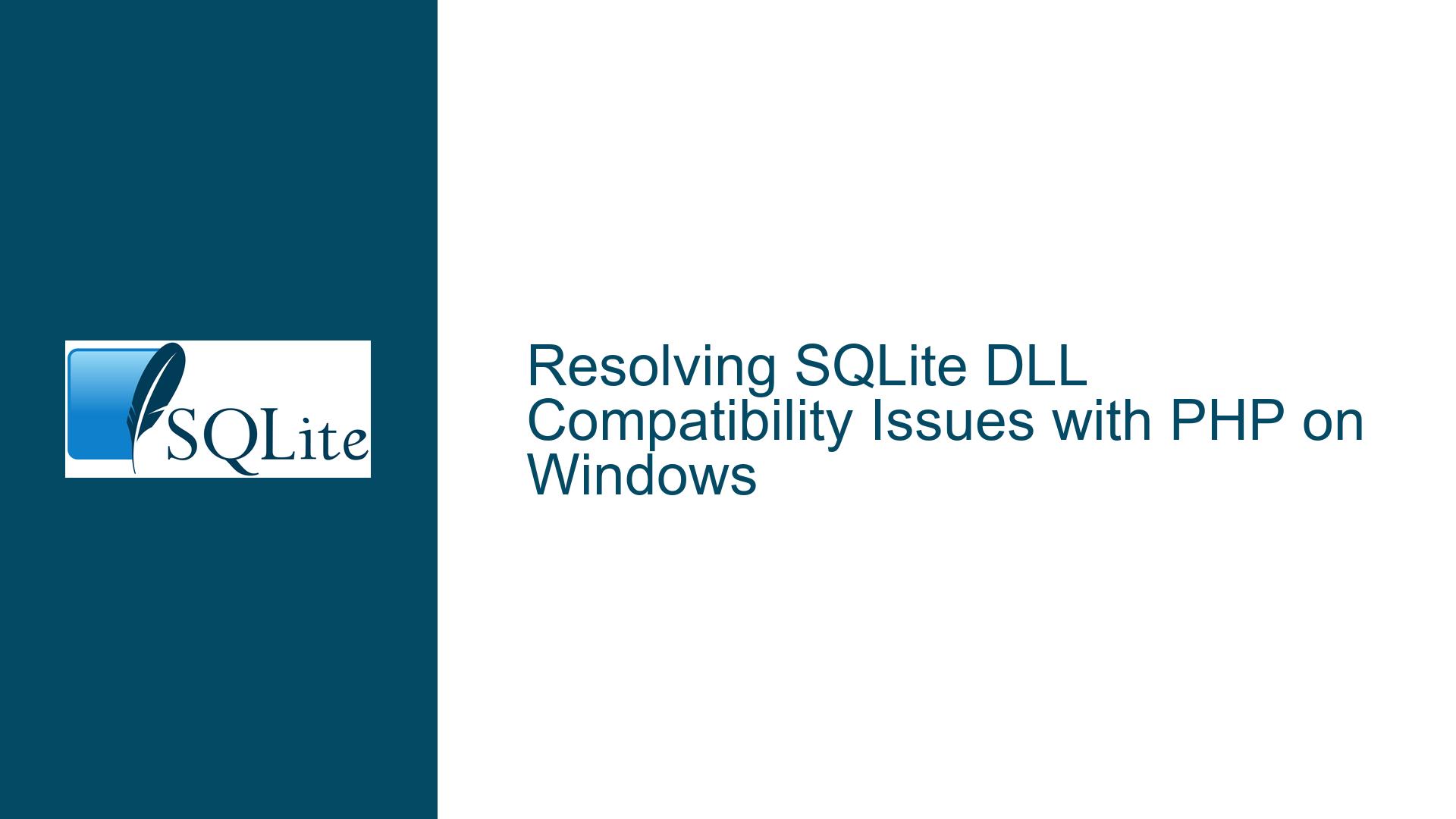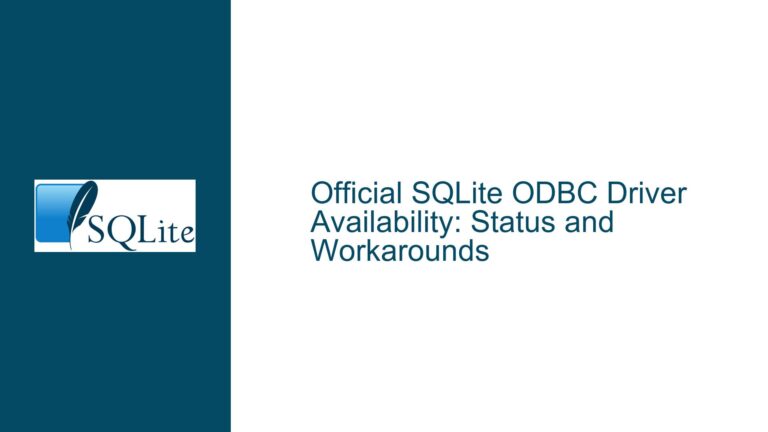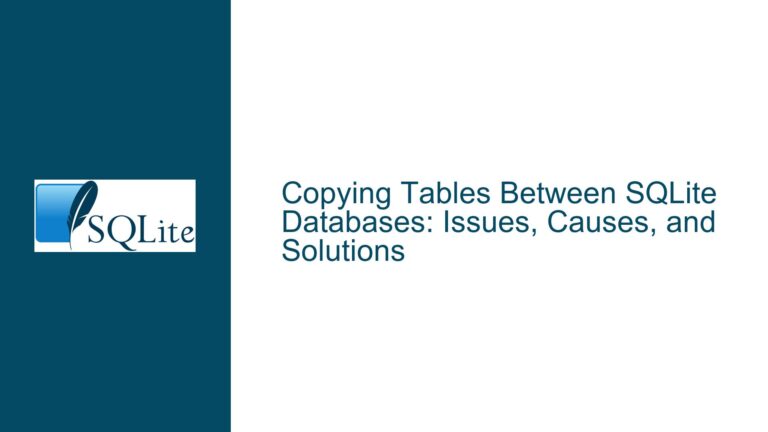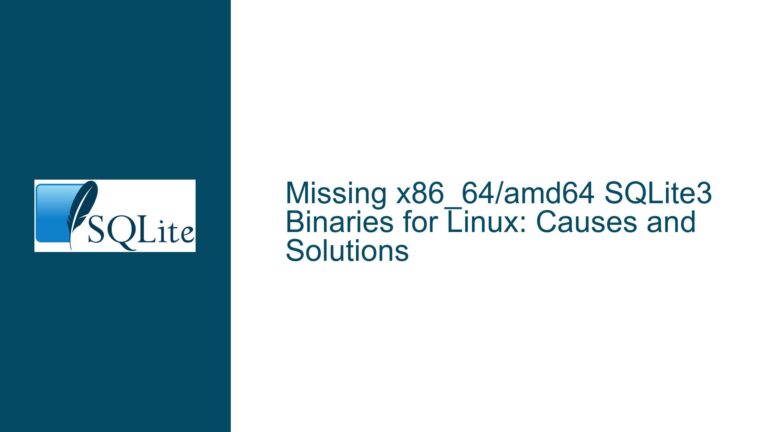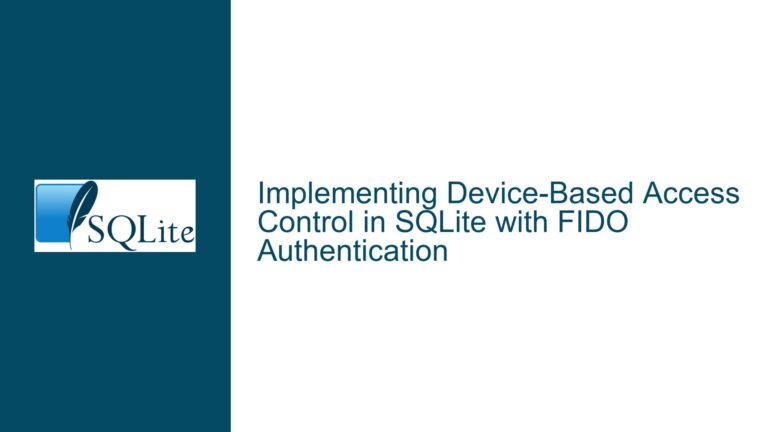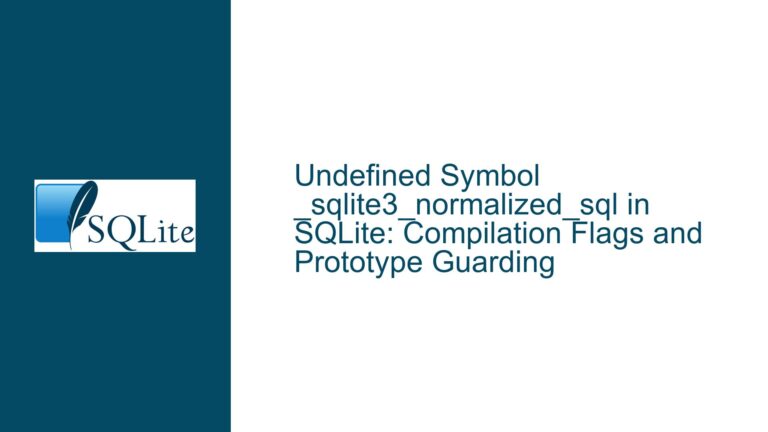Resolving SQLite DLL Compatibility Issues with PHP on Windows
SQLite and PHP Runtime Library Version Mismatch
The core issue revolves around a compatibility problem between the SQLite DLL and PHP on a Windows system. Specifically, the error message indicates that the SQLite DLL is linked with version 9.0 of the Microsoft Visual C Runtime Library, while the PHP core is linked with version 14.28. This mismatch prevents the SQLite module from loading correctly, resulting in a PHP startup warning. The error message is clear in its diagnosis: the runtime libraries used to compile SQLite and PHP must be compatible, if not identical, for the modules to function together seamlessly.
The Microsoft Visual C Runtime Library is a critical component that provides essential functions for programs compiled with Microsoft Visual C++. Different versions of this library are not always backward or forward compatible, which means that software components linked against different versions may fail to interoperate. In this case, the SQLite DLL and PHP were compiled using different versions of the runtime library, leading to the observed incompatibility.
This issue is particularly common when using precompiled binaries, as the compilation environment and linked libraries are determined by the distributor. While precompiled binaries offer convenience, they can introduce such compatibility challenges, especially when integrating multiple software components like PHP and SQLite. Understanding the root cause of this issue requires a deeper dive into how PHP and SQLite interact with the Microsoft Visual C Runtime Library and the implications of version mismatches.
Incompatible Microsoft Visual C Runtime Library Versions
The primary cause of the issue is the incompatibility between the Microsoft Visual C Runtime Library versions used to compile the SQLite DLL and PHP. When software components are compiled, they are linked against specific versions of runtime libraries. These libraries provide essential functions and services that the software relies on during execution. If two components are linked against different versions of the same runtime library, they may expect different behaviors or interfaces, leading to runtime errors.
In this scenario, the SQLite DLL was compiled with version 9.0 of the Microsoft Visual C Runtime Library, while PHP was compiled with version 14.28. These versions are not compatible, which means that the SQLite DLL cannot be loaded by PHP. The error message explicitly states this incompatibility, highlighting the need for both components to be linked against the same or compatible runtime library versions.
The Microsoft Visual C Runtime Library has evolved over time, with each version introducing new features, optimizations, and sometimes breaking changes. While Microsoft strives to maintain backward compatibility, there are limits to this, especially when significant changes are introduced. As a result, software components compiled with different versions of the runtime library may not work together as expected.
Another factor contributing to this issue is the use of precompiled binaries. Precompiled binaries are convenient because they save users the effort of compiling software from source code. However, they also lock the software to the specific runtime library versions used during compilation. If the runtime library versions of different precompiled binaries do not match, compatibility issues can arise, as seen in this case.
Rebuilding SQLite DLL with Compatible Runtime Library
To resolve the compatibility issue, the most effective solution is to rebuild the SQLite DLL using the same version of the Microsoft Visual C Runtime Library as the one used to compile PHP. This ensures that both components are linked against the same runtime library version, eliminating the incompatibility.
The first step in this process is to identify the exact version of the Microsoft Visual C Runtime Library used by PHP. This information can typically be found in the PHP documentation or by examining the PHP binary using tools like Dependency Walker or Visual Studio. Once the correct runtime library version is identified, the next step is to set up a compilation environment that uses the same version.
Compiling SQLite from source code requires a few prerequisites. First, you need to have the appropriate version of Microsoft Visual Studio installed, as it includes the necessary compilers and libraries. For PHP 8.0, which is linked against version 14.28 of the Microsoft Visual C Runtime Library, you would need Visual Studio 2019, as this version corresponds to the runtime library used by PHP.
Once the compilation environment is set up, the next step is to download the SQLite source code from the official SQLite website. The source code is available as an amalgamation, which means that all the necessary files are combined into a single source file, making compilation straightforward. The SQLite website provides detailed instructions on how to compile the source code on Windows using Visual Studio.
After downloading the source code, open the Visual Studio Developer Command Prompt and navigate to the directory containing the SQLite source code. Use the following command to compile the SQLite DLL:
cl /DSQLITE_API=__declspec(dllexport) sqlite3.c /link /DLL /OUT:sqlite3.dll
This command compiles the SQLite source code and generates a DLL file. The /DSQLITE_API=__declspec(dllexport) option ensures that the necessary functions are exported from the DLL, making them available to other programs like PHP. The /link /DLL /OUT:sqlite3.dll options specify that the output should be a DLL file named sqlite3.dll.
Once the DLL is compiled, replace the existing sqlite3.dll in your PHP directory with the newly compiled version. Restart your PHP server and check if the issue is resolved by running php --version. If the error message no longer appears, the compatibility issue has been successfully resolved.
In addition to rebuilding the SQLite DLL, it is also advisable to implement best practices to prevent similar issues in the future. One such practice is to maintain a consistent compilation environment for all software components that need to work together. This includes using the same version of the Microsoft Visual C Runtime Library and other dependencies. By doing so, you can ensure that all components are compatible and reduce the likelihood of runtime errors.
Another best practice is to regularly update your software components to the latest versions. This not only ensures that you have access to the latest features and optimizations but also reduces the risk of compatibility issues. However, when updating, it is important to verify that all components are compatible with the new versions before deploying them in a production environment.
In conclusion, the compatibility issue between the SQLite DLL and PHP on Windows is caused by a mismatch in the Microsoft Visual C Runtime Library versions used to compile the two components. The most effective solution is to rebuild the SQLite DLL using the same runtime library version as PHP. This involves setting up a compatible compilation environment, downloading the SQLite source code, and compiling the DLL using Visual Studio. By following these steps and implementing best practices, you can resolve the issue and ensure smooth operation of your PHP and SQLite integration.
